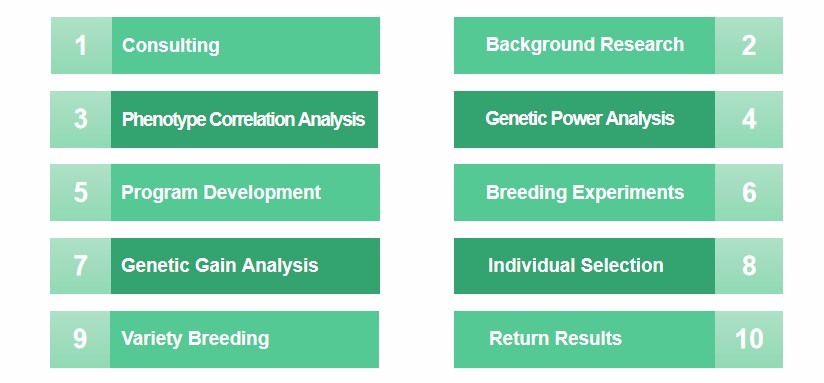
Sweet cherry (Prunus avium L.) is a tall tree of the Rosaceae and Prunus genus, usually growing to 30 meters, mainly distributed in Europe, northwestern Africa, and western Asia. The fruit of Sweet cherry has a long history of consumption, and since the 1980s, it has become an essential commercial variety in temperate regions of Europe.
The newly cut wood of sweet cherry is light reddish-brown, and the color will gradually become darker with time. At the same time, the texture is fine and beautiful. It has a very high use value as a raw material for furniture, musical instrument, and carvings, far exceeding other tree species such as walnut.
Lifeasible's plant breeding scientists have long been concerned with the latest research progress in forest tree breeding, optimizing traditional hybrid breeding techniques, and integrating more modern molecular breeding techniques. We are committed to providing customers with a one-stop Prunus avium L. breeding service, breeding new varieties with early maturity, resistance to harsh environments, and firm flesh.
As early as the 1980s, many sweet cherry selection works had been carried out in Western Europe. With the growing interest in sweet cherry fruit and wood products, there is now a need for new varieties that are suitable for different growing conditions, suitable for long-distance transport, and more rapidly growing. Lifeasible summarizes the genetic diversity of sweet cherries and can provide our customers with various breeding services, including hybrid breeding, biotechnology-assisted breeding, and genomics-assisted selection.
We can use interspecific hybridization, natural hybridization, inbreeding, and other mating methods. We will evaluate indicators such as yield, fruit quality, and growth cycle for hybrids; we, and finally, select varieties that meet customer needs.
We use molecular biological methods such as isozymes and restriction fragment length polymorphisms to screen sweet cherry individuals with target traits earlier in the seedling stage. Or use ionizing radiation mutagenesis to generate inbred fertile clones of sweet cherry varieties.
Existing studies have used next-generation sequencing technology to determine the genome sequence of Prunus avium L., construct a genetic linkage map, analyze genetic diversity, and predict genes related to growth, fruit, stress resistance, etc., and more differences in the genetic map of strains Prunus avium L. We use these studies to rapidly identify critical agronomic genes to advance the selection of elite varieties of Prunus avium L.

Lifeasible has abundant sweet cherry germplasm resources. In response to the current global market demand for sweet cherries, we can cultivate new varieties with faster growth, better wood quality, better fruit quality, and stronger environmental adaptability. We guarantee that you will find the most suitable solution here. If you have any questions, consultation, or cooperation, please contact us.
References
Lifeasible has established a one-stop service platform for plants. In addition to obtaining customized solutions for plant genetic engineering, customers can also conduct follow-up analysis and research on plants through our analysis platform. The analytical services we provide include but are not limited to the following:
Get Latest Lifeasible News and Updates Directly to Your Inbox
Adaptive Evolutionary Mechanism of Plants
February 28, 2025
Unraveling Cotton Development: Insights from Multi-Omics Studies
February 27, 2025